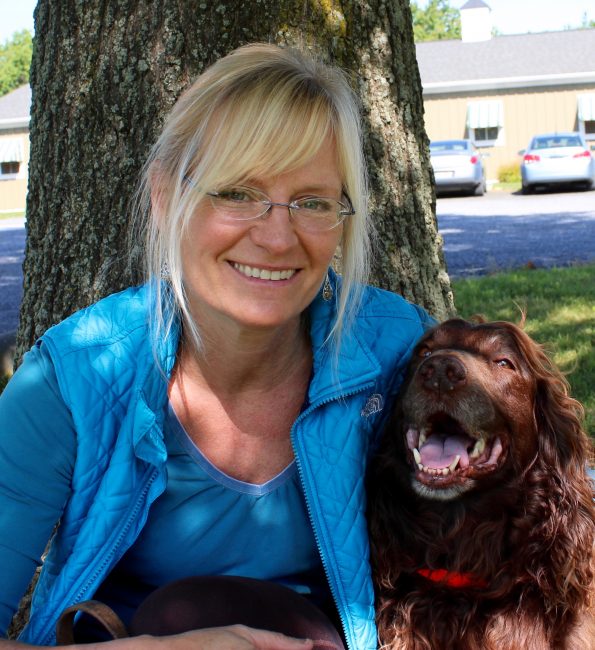
PERIODONTAL DISEASE
◦ It is surprising to know that the most common disease of dogs is periodontal disease. In fact, by age three, 70- 80% of dogs have periodontal disease. It is also surprising to know that most pets show very little symptoms of periodontal disease, even if the disease is advanced. That said, that “dog breath” is probably telling you something!
◦
And what about our cats? They are affected by periodontal disease too. In fact, they can also suffer from an oral inflammatory condition known as stomatitis, and they can develop cavities at the gum line, also known as feline odontoclastic resorptive lesions.What to do?! As with most health problems, prevention is best! Hands down, tooth brushing is most effective, but it also requires training, and time, and the right patient. Not every dog or cat will accept tooth brushing, not every pet parent has the time. Using tooth brushing products made for pets and starting early when young is always best. There are other options that are less successful, but for some pets and their owners, still quite helpful. Stick with products that have the endorsement of VOHC , ( Veterinary Oral Health Council). These products have undergone 2 scientific studies that prove efficacy and range from chews, to wipes, to water additives. What about food? Unfortunately, feeding dry kibble verses canned food is not helpful in keeping teeth clean.If your veterinarian is recommending dental prophylaxis for your pet, it means that
they are concerned about periodontal disease that cannot be remedied at home. This is important because periodontal disease is a progressive inflammatory process that causes to destruction of the tissues supporting the teeth, leading to pain and tooth loss. Additionally, in the case of feline odontoclastic resorptive lesions, teeth may fracture at the gum line, causing tooth root infection and pain. Cats with stomatitis can be so painful that they can become unable to eat properly and can become weak and debilatated.What is done for pets during dental prophylaxis? Is it like us humans when we get our teeth cleaned? Yes and no.
Yes, in the sense that the teeth are cleaned, both on the tooth and under the gum line, followed by polishing. No, in the sense that dogs rarely get cavities but often have advanced periodontal disease that causes loose teeth that must be extracted. Cats with feline odontoclastic resorptive lesions and stomatitis may also need teeth extracted . Also, our pets require general anesthesia for dentals, which has some risks.How risky is general anesthesia for dental prophylaxis? Here are some things to consider:
⁃ Dental anesthesia requires a relatively low plane of anesthesia. In other words, we need our patient to be still.
⁃ The modern approach to anesthesia focuses on using smaller amounts of a combination of drugs to avoid side effects.
⁃ Anesthesia is tailored to the patient’s size, age and health status. It is helpful to allow your veterinarian to perform preanesthetic blood work to determine organ function and health status.
⁃ The anesthetized patient is monitored continuously, both by monitoring equipment and trained personnel, and is also supported by intravenous fluid therapy and warming devices.
⁃ And finally, if you are wondering about statistics; in a study of 98,000 dogs undergoing dental anesthesia, 99.85 % of patients survived.Be aware of the most common disease in dogs and be aware of the unique dental problems that can occur cats. Remember early intervention and prevention is key. We can help you figure out the best products and the best plan for dental health for your pets!
Barn Cat Husbandry
What you need to know about start up, installation, and maintenance of mouse patrol units
Start up Start with healthy cats that have been:
– Tested negative for Feline Leukemia (FELV) and Feline
Immunodeficiency Virus (FIV). – Spayed or neutered, two or three barn cats are an asset, 20 or 30 cats,
not so much! – Dewormed, kittens are born with roundworms and need to be
dewormed at least twice, (same goes for mature cats that have never
been dewormed). – Vaccinated for Rabies, the first Rabies vaccine protects for one year. – Vaccinated for Distemper/upper respiratory combination virus, (FVRCP)
and a booster vaccine 3-4 weeks later. This series also protects for one year. Also consider vaccinating against Feline Leukemia virus, especially for kittens, as they are most susceptible. Think about adopting potential barn cats from our local shelters, they often come with most the above mentioned items, all for for the cost of an adoption fee!
Installation Important things to know about cats:
– Cats intensely dislike a forced encounter of the unknown and love the
familiar, ( that goes for new food, humans, places, other cats, ....all new
things!) – Cats are highly territorial and bond with their territories, even more so
than to the humans who care for them. Sorry, just reporting the facts
here!
Cats will defend their territories against new cats, so special care
should be taken when introducing a new cat into an existing group. – Cats in an established group develop a “group scent” by which they
recognize and accept each other. – So, keep your new mouser from being run off or to be beaten up by
current residents by doing two things:
1) exchanging bedding and other scent soaked articles between the newcomer and the established group. 2) keeping newcomers confined for two weeks, to allow acclimation to new schedule, food , scents, territory, and then doing a slow release.
Maintenance What they need:
– Feed them. Yes, please! Cats cannot maintain themselves solely from
hunting. – Feed on a regular schedule in the morning only. Do not leave feed out
overnight. This is critical to avoid attracting stray cats and wildlife to your property. Fauquier County has the second highest number of reported Rabies cases in Virginia. Avoid attracting Rabies carriers like raccoons, skunks, and foxes. Opossums are rarely infected by Rabies but can transmit Equine Protozoal Myeloencephalitis (EPM) to our
horses... – Provide water.
Provide shelter. – Vaccinate for Rabies, once every three years after the initial one year
vaccine. Cats are especially at risk for contracting Rabies because they may hunt Rabies carriers, (bats, etc), and may also be attacked by Rabies carriers, (raccoons, etc). Vaccinate for FVRCP once every three years after the initial one year vaccine.
– Deworm once a year, the new topical dewormers are a blessing here! – Consider flea and tick control with Seresto collars, they are breakaway
and provide eight months of comprehensive tick and flea control. Facilitate/make possible future vet care by acclimating cats to cat carriers by feeding them in the carriers. There is a way! Take your time over a month or more to train the cats to accept the carrier. This is same as training horses to a trailer. Do it before you have to get them to the vet for an emergency! First, take the carrier apart and remove the lid and door. Then, set up the bottom half of the carrier in a cat friendly spot and line the bottom with comfy bedding. Place the food nearby and over the next week or so move the food closer and closer to the carrier and then finally, in the bottom half of the carrier. After a week or so, add the lid. Then wait yet another week or so and add the door. This will decrease stress for all and eliminate the chief obstacle to proper vet care for your cats; getting there! This training works well for house cats too!
Cats are generally healthy and self sufficient. With minimum care they can thrive in a barn environment, helpfully reducing rodent population while adding a touch of beauty and peaceful companionship!



